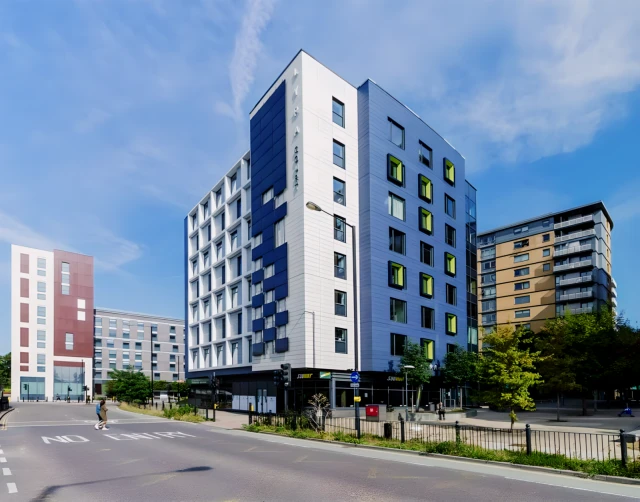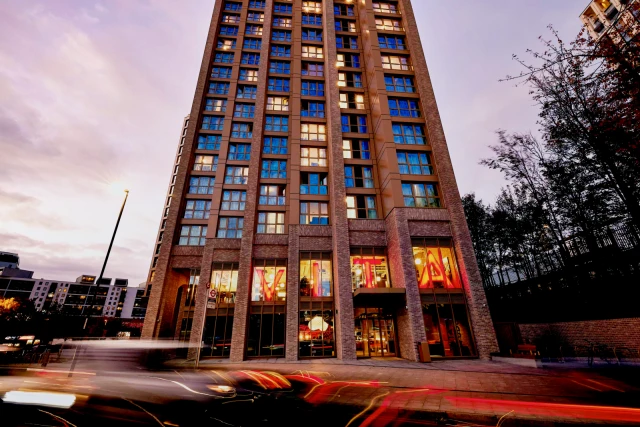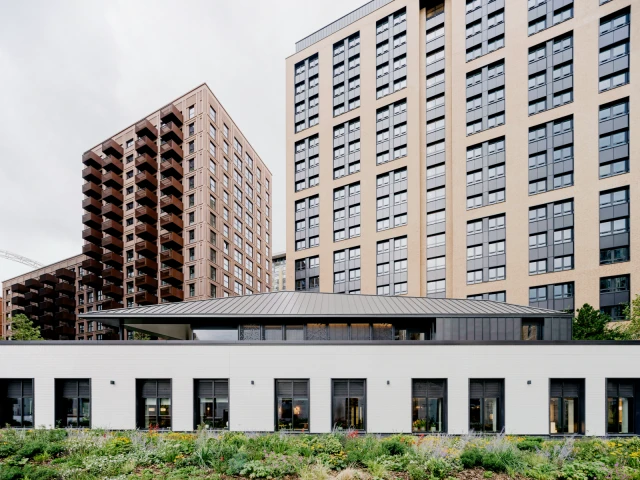
Chỗ ở cho học sinh gần Khoa Cổ điển, Đại học London

Downing The Lyra
từ Khoa Cổ điển, Đại học London
133 PHÚT
48 PHÚT
38 PHÚT
21 PHÚT

Vita Student Lewisham Exchange
từ Khoa Cổ điển, Đại học London
134 PHÚT
46 PHÚT
45 PHÚT
32 PHÚT

Canvas Student Arthur House
từ Khoa Cổ điển, Đại học London
160 PHÚT
58 PHÚT
38 PHÚT
32 PHÚT

Chapter Lewisham
từ Khoa Cổ điển, Đại học London
134 PHÚT
44 PHÚT
48 PHÚT
33 PHÚT

Chapter Spitalfields
từ Khoa Cổ điển, Đại học London
51 PHÚT
18 PHÚT
27 PHÚT
16 PHÚT

Scape Hammersmith
Mannequin House
từ Khoa Cổ điển, Đại học London
135 PHÚT
49 PHÚT
34 PHÚT
30 PHÚT
Scape Wembley
từ Khoa Cổ điển, Đại học London
160 PHÚT
57 PHÚT
37 PHÚT
32 PHÚT
Scape Bloomsbury
từ Khoa Cổ điển, Đại học London
6 PHÚT
3 PHÚT
7 PHÚT
3 PHÚT
Chapter Westminster
từ Khoa Cổ điển, Đại học London
45 PHÚT
17 PHÚT
33 PHÚT
18 PHÚT
Scape Shoreditch
từ Khoa Cổ điển, Đại học London
49 PHÚT
15 PHÚT
31 PHÚT
16 PHÚT
Scape Canada Water
từ Khoa Cổ điển, Đại học London
89 PHÚT
31 PHÚT
50 PHÚT
26 PHÚT
Chỗ ở cho học sinh gần Khoa Cổ điển, Đại học London
Chỗ ở cho sinh viên gần Viện Nghiên cứu Cổ điển London
Giới thiệu về Học viện Nghiên cứu Cổ điển London
Viện Nghiên cứu Cổ điển London ở Anh là thành viên của Trường Nghiên cứu Cao cấp. Trường Nghiên cứu Cổ điển được thành lập vào năm 1953 tại Đại học London với sự hợp tác của Hội xã hội Hy-La. Trường chủ yếu dành riêng cho việc nghiên cứu ngôn ngữ, văn hóa, lịch sử, nghệ thuật, khảo cổ học, và triết học trong các nền văn minh Hy Lạp và La Mã cổ đại. Trường Nghiên cứu Cổ điển cung cấp các chương trình thạc sĩ trong các lĩnh vực Lịch sử Cổ đại, Cổ điển học, Nghệ thuật Cổ điển và Khảo cổ học, Thế kỷ cuối và Nghiên cứu Byzantine.
Trường Nghiên cứu Cổ điển và Văn học đã chuyển đến Senate vào năm 1997. Được xây dựng vào những năm 1930, tòa nhà Senate được coi là tác phẩm hoàn hảo nhất của Charles Horton và là một công trình được liệt kê hạng II. Phòng đọc trên tầng ba của Thư viện Trường Nghiên cứu Cổ điển và Văn học nhìn ra Thư viện Anh. Thư viện cũng có các phòng nghiên cứu đặc biệt dành cho các nhà nghiên cứu và học giả đến thăm. Không chỉ có một bầu không khí văn hóa và nghệ thuật mạnh mẽ, mà nó còn cung cấp tài nguyên và cơ sở vật chất cho nghiên cứu của sinh viên.
Cơ sở lưu trú sinh viên tốt nhất gần Viện Nghiên cứu Cổ điển Đại học London
Dù bạn là sinh viên quốc tế hay sinh viên địa phương đang tìm kiếm chỗ ở tốt nhất gần Viện Nghiên cứu Cổ điển London, uhomes là sự lựa chọn lý tưởng cho bạn. Các bất động sản của chúng tôi có giá cạnh tranh, nhưng chúng tôi không thỏa hiệp về chất lượng hoặc tiện nghi. Liên hệ với chúng tôi hôm nay và để chúng tôi giúp bạn tìm ngôi nhà sinh viên hoàn hảo!
4. Scala Street
6. Goodge St
7. Fitzrovia
10. Stukeley Street
Chỗ ở trong khuôn viên tại Học viện Nghiên cứu Cổ điển London
Tại Viện Nghiên cứu Cổ điển Đại học London, chỗ ở trong khuôn viên cung cấp một lựa chọn sống tiện lợi và thoải mái cho sinh viên. Nằm ở trung tâm London, những nơi ở này gần UOL cung cấp dễ dàng tiếp cận cả các cơ sở của trường đại học và cuộc sống văn hóa, học tập sôi động của thành phố. Các phòng thường được trang bị tốt, cung cấp sự kết hợp giữa các tiện nghi hiện đại và những điều thoải mái cần thiết, hoàn hảo cho sinh viên muốn cân bằng giữa việc học tập với trải nghiệm sống thú vị. Thêm vào đó, việc sống trong khuôn viên thúc đẩy một cảm giác cộng đồng giữa các sinh viên, cho phép tăng cường tương tác, hợp tác và cơ hội kết nối.
Chi phí sinh hoạt tại Viện Nghiên cứu Cổ điển của Đại học London
1. Chi phí chỗ ở:
Giá ký túc xá thay đổi rộng rãi tùy thuộc vào vị trí và loại (căn hộ chung, studio, v.v.). Nhìn chung, sinh viên có thể chi khoảng £700 đến £1,500 mỗi tháng cho tiền thuê ở London. Sống trong chỗ ở chung có thể giúp giảm chi phí.
2. Học phí:
Học phí tại Viện Nghiên cứu Cổ điển London thay đổi tùy thuộc vào khóa học và liệu bạn có từ Vương quốc Anh/UE hay không, hoặc là sinh viên quốc tế. Đối với các khóa học sau đại học, sinh viên Vương quốc Anh/UE có thể phải trả khoảng £9,000 đến £13,000 mỗi năm, trong khi sinh viên quốc tế có thể thấy học phí từ £17,000 đến £22,000 mỗi năm.
3. Chi phí hàng ngày (Thức ăn, Giao thông, v.v.):
Các chi phí sinh hoạt hàng ngày ở London, bao gồm thức ăn, giao thông, và các khoản khác, có thể cộng lại khoảng £400 đến £700 mỗi tháng. Chi phí giao thông, ví dụ, có thể khoảng £140 mỗi tháng với thẻ Oyster sinh viên. Nấu ăn ở nhà và tận dụng các ưu đãi cho sinh viên có thể giúp quản lý những chi phí này.
4. Tổng chi phí hàng năm:
Gộp tổng chi phí chỗ ở, học phí và chi phí hàng ngày, tổng chi phí hàng năm cho một sinh viên tại Viện Nghiên cứu Cổ điển London có thể dao động khoảng giữa £21,000 và £35,000. Phạm vi này có thể thay đổi dựa vào lựa chọn lối sống và thói quen tiêu dùng.
Các điểm tham quan du lịch gần Viện Nghiên cứu Cổ điển Đại học London
1. Bảo tàng Anh: Nằm cách Viện Nghiên cứu Cổ điển chỉ một đoạn đi bộ ngắn, Bảo tàng Anh là một điểm tham quan nổi tiếng thế giới với bộ sưu tập đồ cổ và hiện vật cực kỳ ấn tượng từ khắp nơi trên thế giới. Từ xác ướp Ai Cập cổ đại đến Đá Rosetta, Bảo tàng này là một địa điểm không thể bỏ qua cho bất kỳ ai quan tâm đến lịch sử và văn hóa.
2. Thư viện Anh: Một điểm thu hút gần đó cũng rất đáng để tham quan là Thư viện Anh, nơi có hơn 150 triệu tài liệu bao gồm sách, bản thảo, bản đồ và hình ảnh. Những điểm nổi bật bao gồm Magna Carta, Folio đầu tiên của Shakespeare và lời bài hát gốc của Beatles.
3. Chợ Camden: Để cảm nhận hương vị của London hiện đại, hãy đến Chợ Camden, nơi chỉ cách Viện Nghiên cứu Cổ điển một chuyến tàu ngắn. Chợ cung cấp nhiều loại quần áo, trang sức, và quầy hàng thực phẩm, cũng như âm nhạc trực tiếp và các nghệ sĩ đường phố.
4. Bảo tàng Quốc gia: Những người yêu nghệ thuật cũng nên dành thời gian tham quan Bảo tàng Quốc gia, nơi chỉ cách Viện Nghiên cứu Cổ điển vài điểm dừng trên tàu. Bảo tàng này chứa một bộ sưu tập vô song các bức tranh Tây Âu, với những tác phẩm của Van Gogh, Botticelli và Rembrandt nằm trong số những điểm nổi bật.
5. Tháp London: Một đoạn đi bộ ngắn qua sông Thames từ Viện Nghiên cứu Cổ điển sẽ dẫn bạn đến Tháp London, một pháo đài lịch sử đã từng là cung điện hoàng gia, nhà tù và kho báu trong nhiều năm. Tháp này là nơi lưu giữ những viên Ngọc quý của Vương miện, cùng với một lịch sử đen tối và hấp dẫn.
6. Nhà thờ St. Paul: Một chuyến tàu ngắn từ Viện Nghiên cứu Cổ điển sẽ đưa bạn đến Nhà thờ St. Paul, một trong những tòa nhà biểu tượng nhất của London. Nhà thờ này được thiết kế bởi Sir Christopher Wren vào thế kỷ 17 và có kiến trúc tuyệt vời cùng phong cảnh ngoạn mục của thành phố.
7. Bảo tàng Tate Hiện đại: Một điểm thu hút khác mà những người yêu nghệ thuật không thể bỏ qua là Bảo tàng Tate Hiện đại, cũng chỉ cách Viện Nghiên cứu Cổ điển vài điểm dừng trên tàu. Bảo tàng này có một bộ sưu tập tuyệt vời các tác phẩm nghệ thuật hiện đại và đương đại, với những tác phẩm của Picasso, Warhol và Rothko nằm trong số những điểm nổi bật.
8. Khu vực Nhà hát West End: Để có một đêm ra ngoài thành phố, hãy đến West End của London, nổi tiếng với các sản phẩm nhà hát thế giới. Từ nhạc kịch đến kịch, có điều gì đó cho mọi người ở khu vực sôi động và thú vị này của thành phố.
9. Công viên Hyde: Nếu bạn cần một khoảng thời gian nghỉ ngơi khỏi sự ồn ào và nhộn nhịp của thành phố, hãy đến Công viên Hyde, một trong những công viên lớn nhất của London. Công viên này có những khu vườn đẹp, hồ nước yên tĩnh và nhiều không gian để thư giãn và tận hưởng không khí trong lành.
10. Nhà Quốc hội: Cuối cùng, không có chuyến tham quan nào đến London hoàn chỉnh nếu không ghé thăm Nhà Quốc hội, chỉ cách Viện Nghiên cứu Cổ điển một đoạn đi bộ ngắn. Các tòa nhà Quốc hội ngập tràn lịch sử và kịch tính, và du khách có thể tham gia các tour hướng dẫn để tìm hiểu thêm về cách thức hoạt động của chính trị Anh.
Tôi hy vọng danh sách các điểm tham quan du lịch này đã hữu ích và mang lại thông tin bổ ích. Với rất nhiều điều để xem và làm ở London, bạn chắc chắn sẽ tìm thấy điều gì đó khiến bạn say mê và hiếu kỳ.
Hướng dẫn giao thông của Viện Nghiên cứu Cổ điển London
1. Tàu điện ngầm là Lựa Chọn Của Bạn: Bạn thật may mắn vì trạm tàu điện ngầm gần nhất là Russell Square trên tuyến Piccadilly. Chỉ cách một quãng đi bộ ngắn từ viện. Tuyến này kết nối bạn đến các địa điểm chính ở London như King's Cross và Sân bay Heathrow. Vô cùng tiện lợi cho việc đi lại hàng ngày hoặc bắt chuyến bay cho những ngày nghỉ lễ.
2. Xe buýt - Ghi Nhớ Những Số Này: Các tuyến xe buýt quanh đây khá ổn. Các số 7, 59, 68, 91, 168 và 188 - hãy nhớ những số này. Chúng là những chiếc xe buýt sẽ là bạn đồng hành thường xuyên của bạn. Chúng chạy thường xuyên và có thể đưa bạn đến những nơi mà tàu điện ngầm không thể. Thêm vào đó, xe buýt hai tầng là biểu tượng của London - hãy chọn chỗ ngồi ở tầng trên để có một tour tham quan nhỏ.
3. Đi bộ - Đây Là Một Điều Bình Thường Tại Đây: Viện nằm trong một phần thành phố rất dễ đi bộ. London đầy bất ngờ ở mỗi góc phố, vì vậy nếu bạn có thời gian, hãy đi dạo quanh. Đó thường là cách tốt nhất để tìm những viên ngọc ẩn - từ các hiệu sách độc đáo, quán cà phê, và nhiều thứ khác nữa.
4. Đi xe đạp - Dành Cho Những Người Dũng Cảm Và Quyết Đoán: London có chương trình chia sẻ xe đạp của riêng mình - Santander Cycles. Có nhiều trạm đỗ quanh Russell Square. Nó rẻ, vui vẻ và thân thiện với môi trường. Chỉ cần nhớ giữ an toàn và tuân thủ các quy tắc khi đi xe đạp.
5. Taxi và Ứng Dụng Gọi Xe - Dành Cho Những Ngày Mưa: Đôi khi thời tiết không ủng hộ bạn, hoặc có thể đó là một trong những đêm khuya ở thư viện. Taxi đen và các ứng dụng như Uber hoặc Bolt rất phổ biến. Có phần đắt đỏ hơn, nhưng chúng sẽ đưa bạn đến cửa tận nơi mà không gặp rắc rối.
Đó là khoảng tóm tắt mà bạn cần biết. Hãy giữ sẵn một thẻ Oyster hoặc thẻ thanh toán không tiếp xúc để có giá tốt nhất, và luôn có một kế hoạch dự phòng trong trường hợp có sự chậm trễ tàu điện ngầm hoặc thay đổi lộ trình xe buýt. Chào mừng bạn đến với sự nhộn nhịp của giao thông London!
Các khóa học phổ biến tại Viện Nghiên cứu Cổ điển Đại học London
Ngôn ngữ và Văn học Hy Lạp cổ đại: Khóa học này là một cuộc khám phá sâu sắc vào thế giới của Hy Lạp cổ đại. Nó không chỉ là về việc học ngôn ngữ; mà còn là hiểu biết về nền văn hóa đã mang đến cho chúng ta những sử thi như Iliad và Odyssey. Những văn bản bạn sẽ nghiên cứu không chỉ là những câu chuyện cổ xưa; chúng là nguồn gốc của văn học phương Tây.
Ngôn ngữ Latinh và Văn học La Mã: Tại đây, bạn không chỉ đang học tiếng Latinh; bạn đang khám phá ngôn ngữ đã định hình một nền văn minh. Khóa học này đưa bạn qua các tác phẩm của Virgil, Ovid, và nhiều người khác. Nó không chỉ về ngữ pháp; mà còn là hiểu biết về những tiếng nói đã vang vọng qua Đế chế La Mã.
Triết học cổ đại: Khóa học này giải quyết những câu hỏi lớn mà các triết gia cổ đại đã suy tư. Từ Plato đến Aristotle, bạn không chỉ đang nghiên cứu triết học; bạn đang tương tác với những ý tưởng đã hình thành nền tảng của tư tưởng phương Tây.
Lịch sử cổ đại: Đây không phải là lớp học lịch sử điển hình của bạn. Bạn đang khám phá các nền văn minh của Hy Lạp và La Mã, đúng vậy, nhưng cũng nhìn vào cách chúng tương tác với thế giới cổ đại rộng lớn hơn. Nó là về việc kết nối các điểm giữa quá khứ và hiện tại của chúng ta.
Nghệ thuật cổ điển và Khảo cổ học: Tại đây, bạn không chỉ đang nhìn vào các hiện vật; bạn đang học về nghệ thuật, kiến trúc, và các đồ vật hàng ngày định nghĩa các xã hội cổ đại. Nó giống như là một thám tử, ghép các manh mối lại để hiểu cách mà con người đã sống, thờ phượng, và thể hiện bản thân.
